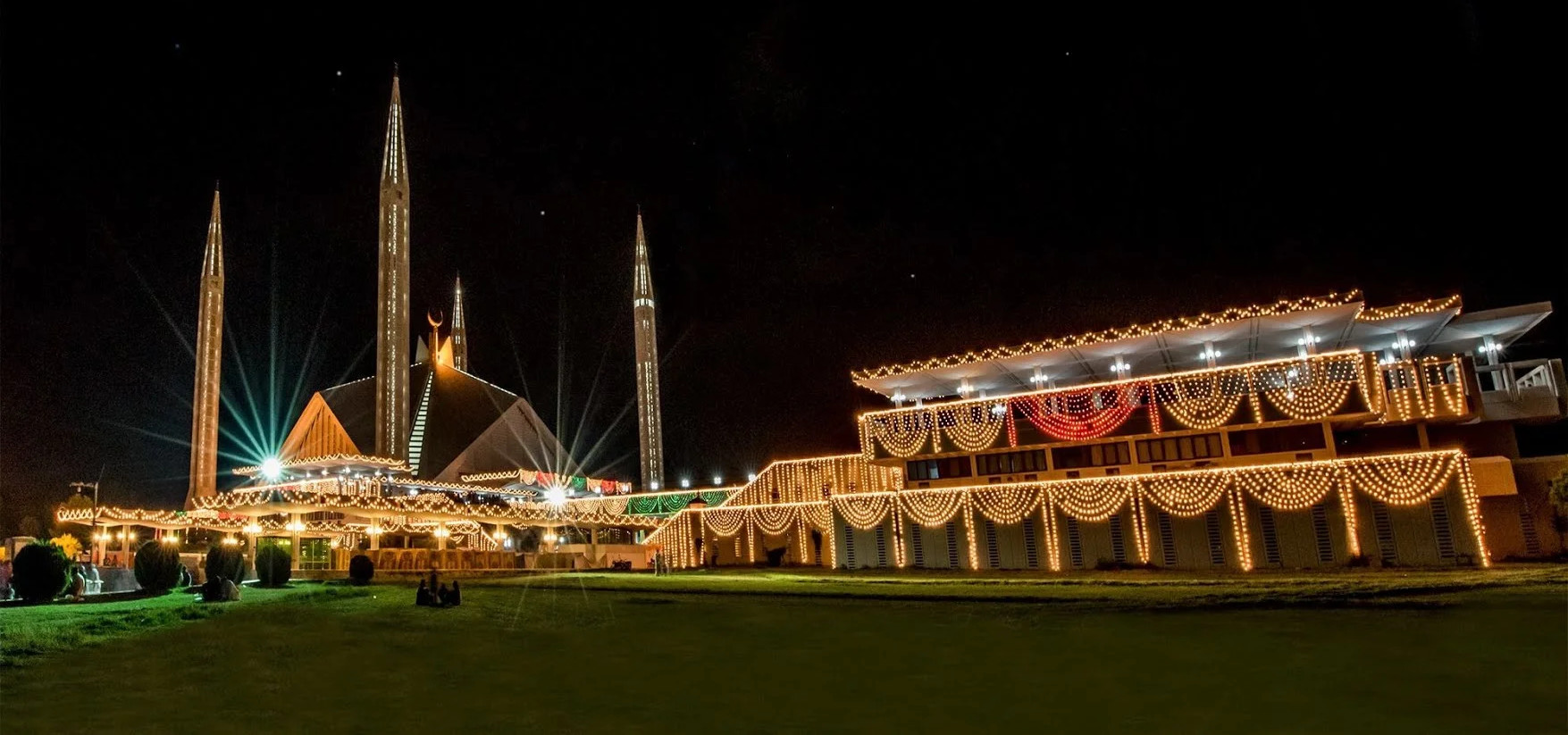Today is Eid al-Fitr, the end of Ramadan, the month of fasting, prayer and charity for Muslims. Greet your Muslim friends with a joyous “Eid Mubarak!” meaning “Happy Eid and Blessed Celebrations!”
By Hibba Haider
Eid al-Fitr marks the end of Ramadan, the month of fasting, prayer and charity that Muslims practice annually. Translated, “Eid al-Fitr” means “the festival of breaking the fast.”
Eid al-Fitr, sometimes spelled Eid ul Fitr, falls on the first day of Shawal, the 10th month of the Islamic Hijri calendar. Since Eid depends on the sighting of the moon, it’s exact date isn’t known immediately. This year it is May 13.
Coming after a month of sacrifice and abstinence dedicated to Allah, Eid is a special and important time in Islam. Families, loved ones and communities come together to rejoice and celebrate. Allah has bestowed it as a reward for the devotes’ self-control.
The day of the Eid al-Fitr starts with offering fajr (morning prayer) with one’s family after ghusl (cleansing), which purifies the whole body. Muslims are encouraged to forgive and seek forgiveness. Practices vary from country to country, but basics remain the same.
After morning prayers, everyone dons festive clothing and heads to the mosque or local community center to join in congregational prayers and listen to the Eid sermon.
Gathering at the mosque also allows one to meet many friends and community members, some of whom you might not have seen through the rest of the year. All greet each other by saying “Eid Mubarak” meaning “Happy Eid and Blessed Celebrations.”
The gathering at the mosque can also be a powerful experience. The person offering prayers next to you may not be from your country or culture, might not even speak the same language, but all Muslims share the same wavelength of jubilance on the occasion of Eid al-Fitr!
Another important practice is Zakat ul Fitr or Fitrana, a donation to charity that must be made during Ramadan before Eid prayers. These donations are distributed among the neediest to ensure they can participate in Eid celebrations.
I remember growing up in Pakistan that homes and streets were decorated with lanterns, twinkling lights and garlands of flowers. The photo above is of the Faisal Mosque in Islamabad, Pakistan, decorated for Eid.
My father, being the oldest of his siblings, used to invite all his family to our home. My mom had an elaborate meal prepared while family members brought sweets and traditional desserts to share. Arrangements for the children included balloons, rides and fun activities. It is also traditional to exchange gifts during Eid celebrations, especially parents and relatives giving presents to children. The most exciting part was receiving cash (eidi) and I remember the children of all families competing with each to see who earned the most cash. The younger children, though, were more interested in the toys.
In the US, families try to replicate the same memories with creative decorative ideas as well as sell customized handmade cards, decorations, wall hangings, door hangings, paintings, anything that can bring the same jovial feeling in the celebrations of Eid.
Eid is a three-day-long celebration. Muslims living outside majority Muslim societies may not be able to celebrate it traditionally, but many of them bring the joy into its celebration by extending festive activities over weeklong duration, including the weekends on both ends. It can involve community bazaars selling ethnic clothes, bangles, jewelry, food, henna, and other culturally attractive decorative items.
In the U.S. and the U.K., many Muslims request days off school or work to travel or celebrate with family and friends.
Celebrating Eid in 2021 amid the COVID 19 pandemic can be anxiety-provoking. Some find it hard to keep traditional or religious observances in a manner that brings satisfaction and joy.
But Muslims — like everyone else — share the responsibility of being safe and come up with creative ways to celebrate. Many plans are already formalized to have Eid prayers via Zoom in our own homes and later have a drive-through in local mosques for children and families to pick up Eid baskets or toys.
The spirit of the celebration I believe will not fade, though it will be different for a while. The most important thing this year is the humbling appreciation and gratitude offered by Muslims to Allah having been able to be healthy enough to fast despite the pandemic and fortunate enough to be celebrating Eid with health along with family members. Many are not so fortunate.
This year we are especially praying for the pandemic to end all over the world and to bring peace and patience to those who have lost loved ones and are not celebrating Eid without them this year.
Let us pray for future Eids to come all around the world for all humankind and for many more festive years ahead, inshallah (God Willing)!
[Hibba Haider, M.D., is a pediatrician with Health Partnership Clinic in Shawnee Mission, Overland Park and Olathe, Kansas. She is also vice president of the Crescent Peace Society, Kansas City-based organization that helps to educate the public about the Muslim faith and facilitates Interfaith dialogue and understanding to promote peace and tolerance.]

